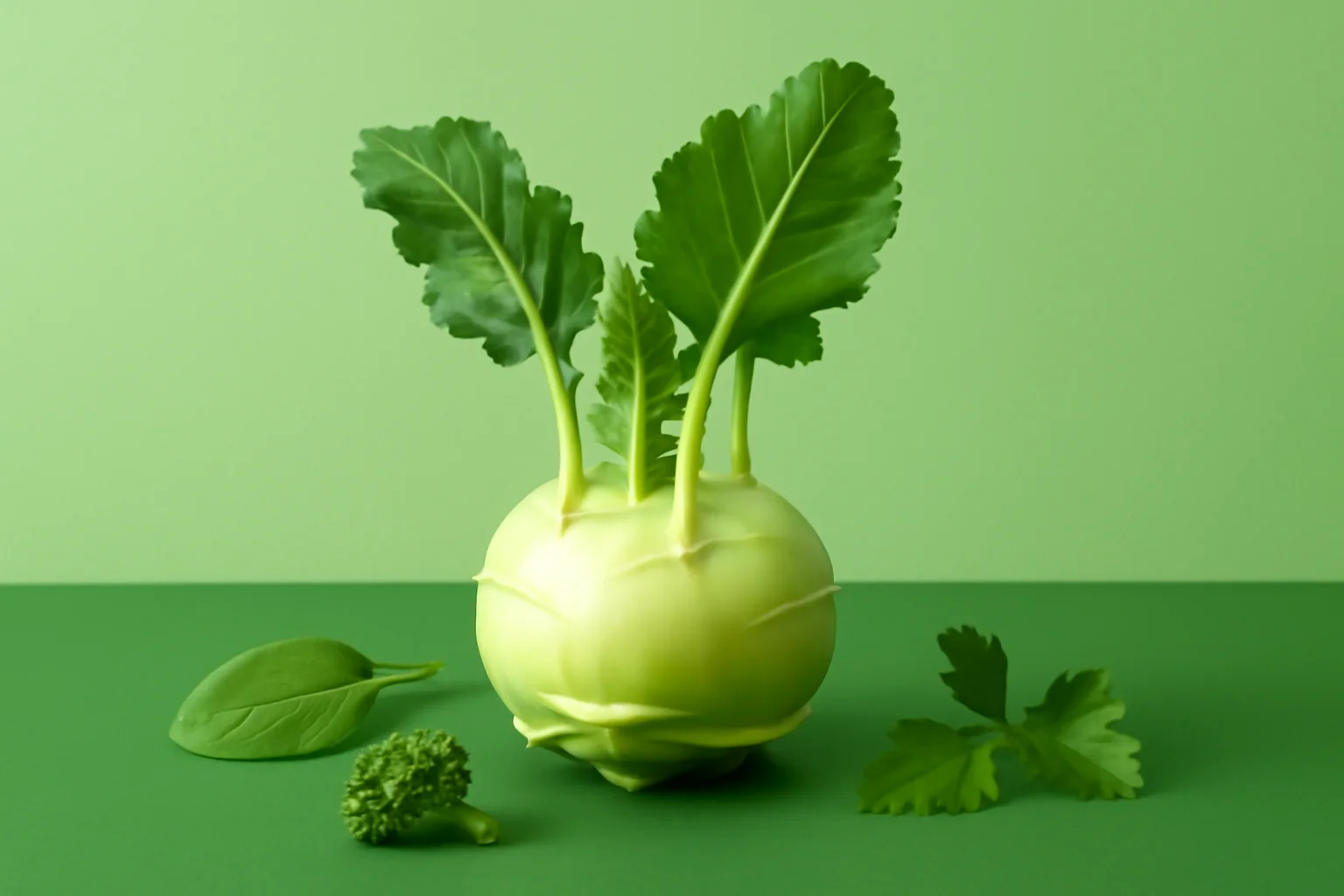
The Beneficial Effects of Kohlrabi on Our Health and Nutrition
The kohlrabi, this unique vegetable belonging to the cabbage family, is becoming increasingly popular in modern nutrition. Along with its fresh, crunchy texture and distinctive flavor, it has numerous health benefits. Since kohlrabi is available from spring to autumn, it can be easily incorporated into our diet at almost any time. This vegetable can be used not only in salads but also in main dishes and side dishes, making its versatility a great asset for enriching our daily meals.
Kohlrabi is rich in vitamins and minerals, which can contribute to the healthy functioning of our bodies. Additionally, due to its low calorie content, it can be an ideal choice for those on a diet. The fibers found in this vegetable help maintain the health of the gut flora, so regular consumption of kohlrabi can aid digestion. Moreover, it is also rich in antioxidants, which protect cells from harmful free radicals.
Thus, kohlrabi is not only delicious but also packed with nutrients, which is especially important for healthy eating. In the following sections, we will explore the beneficial effects of kohlrabi in more detail and discover why it is worth incorporating this vegetable into our daily diet.
The Nutritional Content of Kohlrabi
Understanding the nutritional content of kohlrabi is essential to uncover the true potential of this vegetable. Primarily rich in vitamins and minerals, it is considered an extremely nutritious food. Thanks to its particularly high vitamin C content, kohlrabi can help boost the body’s immune defenses. This vitamin plays an important role in the proper functioning of the immune system and also contributes to maintaining skin health.
Additionally, kohlrabi contains B vitamins, such as B6 and folic acid, which are essential for cell metabolism and the health of the nervous system. Folic acid is especially important for pregnant women, as it contributes to the proper development of the fetus.
Kohlrabi is also rich in minerals such as potassium, calcium, and magnesium. Potassium helps regulate blood pressure and maintain heart health, while calcium and magnesium play crucial roles in maintaining the health of bones and teeth. Furthermore, the low calorie content of kohlrabi makes it attractive, as it contains only 27 calories per 100 grams, making it an ideal choice for those looking to lose weight.
The fiber content of kohlrabi is also noteworthy, as fibers aid digestion, promote bowel movements, and can contribute to a feeling of fullness. Regular fiber consumption may also reduce the risk of heart disease and diabetes.
Overall, the nutritional content of kohlrabi is outstanding, making it worth incorporating into our diet to take advantage of its health benefits.
The Beneficial Effects of Kohlrabi on Digestion
The beneficial effects of kohlrabi on digestion are particularly noteworthy. The vegetable contains a significant amount of fiber, which promotes bowel function and normal digestive processes. The fibers help improve the consistency of stools, thereby preventing constipation, and support the health of the gut flora.
Prebiotics found in kohlrabi, such as inulin, nourish the beneficial bacteria in the gut flora, thus aiding the health of the digestive system. Maintaining the balance of gut flora is important not only for digestion but can also contribute to strengthening the immune system. A healthy gut flora can help in the more effective absorption of nutrients and the elimination of toxins.
Consuming kohlrabi is especially recommended for those prone to digestive issues, such as bloating or heartburn. The vegetable can alleviate these complaints, as it helps regulate stomach acidity and supports bowel function.
Moreover, due to its low calorie content and high water content, kohlrabi can be an ideal choice for those on a diet. Its abundant fiber content can contribute to a feeling of fullness, thus helping with weight management.
In summary, regular consumption of kohlrabi positively impacts digestion and contributes to the maintenance of gut health, making it worth incorporating into our diet.
The Effects of Kohlrabi on the Cardiovascular System
The beneficial effects of kohlrabi on the cardiovascular system are also noteworthy. Due to its low calorie content and high fiber content, kohlrabi can be an ideal choice as part of a heart-healthy diet. The fibers help lower blood cholesterol levels, which can contribute to the prevention of cardiovascular diseases.
The potassium found in kohlrabi plays an important role in regulating blood pressure. Potassium helps counteract the effects of sodium, thus contributing to maintaining blood pressure at a normal level. Maintaining proper blood pressure is essential for heart health, as high blood pressure can increase the risk of heart disease and stroke.
Kohlrabi is also rich in antioxidants, such as vitamin C and flavonoids, which protect cells from harmful free radicals. These antioxidants can help reduce inflammation and cell damage, which can also contribute to the development of heart disease.
Therefore, regular consumption of kohlrabi can help maintain cardiovascular health and contribute to the prevention of heart disease. This vegetable can be a delicious and nutritious addition to the daily diet, making it worthwhile to explore the health benefits of kohlrabi.
How to Consume Kohlrabi?
Kohlrabi is a versatile vegetable that can be used in many ways in the kitchen. The most common way to prepare it is to consume it raw, such as in salads or vegetable platters. Its crunchy texture and fresh flavor pair excellently with other vegetables, such as carrots or cucumbers, allowing for the creation of delicious and nutritious salads.
The cooked version of kohlrabi is also popular, as it can be steamed, roasted, or boiled. Steaming preserves its nutritional content and makes it easily digestible. Cooked kohlrabi can be a great side dish for meat dishes, but it can also be served as a standalone dish, seasoned with cheese and spices.
We can also roast kohlrabi, for example, in the oven, where a little olive oil and spices can create delicious, crispy bites. The combination of olive oil and spices not only enhances its flavor but also adds healthy fats to the dish.
Kohlrabi also works excellently in soups and purees, as its creamy texture and flavor provide a unique experience. For instance, we can make kohlrabi cream soup, which can be served seasoned with spices and a little cream.
Wherever we incorporate kohlrabi into our diet, it is worth consuming it fresh to preserve as many nutrients as possible. Due to the seasonal availability of this vegetable, it offers fresh, tasty, and nutritious meals, making it worthwhile to explore the possibilities it holds.
**Note:** The information in this article is for informational purposes only and does not substitute for medical advice. Always consult your doctor for health issues!

